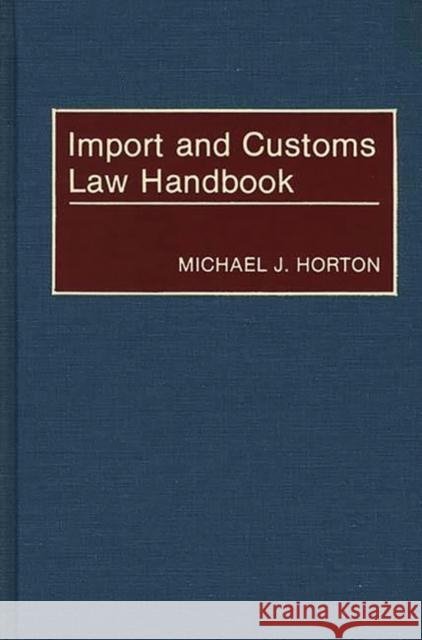Import and Customs Law Handbook » książka
Import and Customs Law Handbook
ISBN-13: 9780899306650 / Angielski / Twarda / 1992 / 308 str.
Complying with import laws, regulations, and procedures is a technical, complex, and often costly legal problem. Michael Horton, a former customs officer himself and an attorney now specializing in customs law, draws on his practical experience to provide understandable explanations of what the laws are, how they work, and how import operations can be organized to conform to them and still be cost-effective. Comprehensive and easily accessed, Horton's handbook is also a study of the Customs Service's history, evolution, and current operations, providing corporate executives and particularly compliance officers with the understanding they need to communicate effectively with Customs officials, and in this way to sidestep potentially costly mistakes.
Horton begins with background on the Service and a review of how imported goods are classified and appraised. He gives help on complying with recordkeeping and product marking requirements, on how to troubleshoot import transactions, and cites the importer's three most important legal obligations. Covered in equal detail are such matters as reportable costs, methods for reducing duties, requesting duty refunds, and delaying duty payment by the use of bonded warehouses and foreign trade zones. Horton then itemizes specific methods for reporting costs to Customs and requesting duty refunds. Of special interest to anyone vexed and confused by the ways in which governmental agencies work, Horton gives clear, useful advice on how Customs deals with legal violations and on how to solicit and obtain binding administrative rulings on current and proposed import transactions. With emphasis on procedures as well as policies, Horton's explanations and guidance will be of special benefit to corporate sales and marketing executives, to buyers and purchasing agents, corporate and hired counsel, and to management at all levels in businesses and industries involved in international trade.











